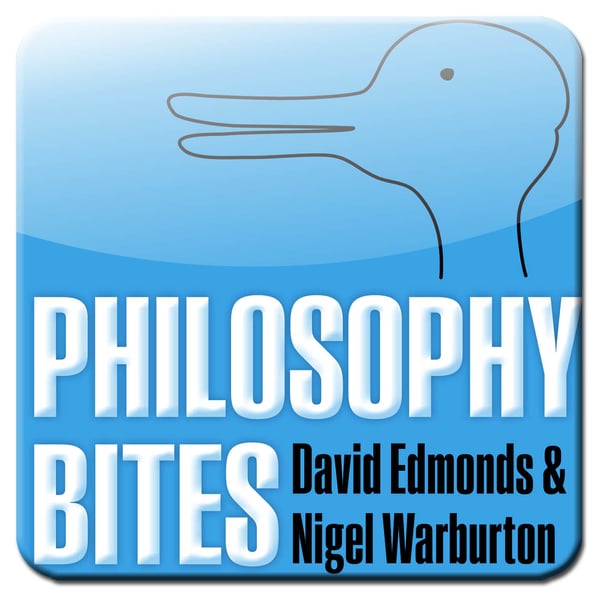Anthony Kenny on Aquinas' Ethics
Philosophy Bites
Nigel Warburton
4.6 • 2K Ratings
🗓️ 18 May 2008
⏱️ 14 minutes
🧾️ Download transcript
Summary
Transcript
Click on a timestamp to play from that location
| 0:00.0 | This is philosophy bites with me David Edmonds and me Nigel Warburton. |
| 0:07.0 | Philosophy bites is available at www |
| 0:09.6 | philosophy bites.com. The most significant philosopher of the medieval period, Thomas Aquinas, was born in what in the 13th century was called the Kingdom of Sicily. |
| 0:19.0 | He attended several universities, among them the University of Naples. After training as a priest and joining |
| 0:25.4 | the Dominican Order, he became a theologian. He wrote on a huge range of topics, including |
| 0:30.7 | a detailed examination of several proofs for the existence of God. |
| 0:35.0 | But here, Anthony Kenny discusses his writings on ethics. |
| 0:39.0 | Anthony Kenny, welcome to Philosophy Bines. |
| 0:41.0 | It's pleasant to be back on the program. |
| 0:44.1 | The topic we want to focus on today is Thomas Aquinas, but specifically his ethics. |
| 0:49.7 | Before we go into that, perhaps you could sketch a little about who Aquinas was. |
| 0:54.0 | Yes Aquinas lived right in the middle of the 13th century which is perhaps the highest point of the high middle ages. |
| 1:01.0 | He was a Dominican friar, spent most of his life in universities like the |
| 1:06.3 | New University of Paris. Universities were new things then and the begging friars and the preaching friars, |
| 1:15.1 | Franciscans and Dominicans, they were new things as well and between them |
| 1:19.4 | they more or less shaped the intellectual life of the 13th century. |
| 1:24.4 | Aquinas' great contribution was the way in which he reconciled Aristotelian philosophy |
| 1:31.3 | with Christian theology. At the beginning of his life, Aristotle was largely |
| 1:37.7 | forbidden by the church authorities. By the end of his life, most of Aristotle's text were obligatory material in the universities. |
| 1:48.0 | And it was largely due to the genius of Aquinas that this happened. |
| 1:53.0 | So what did Aquinas take from Aristotle when it came to his ethics? |
| 1:58.0 | Aristotle's ethics is based most of all on the concept of happiness, that is on what is the most worthwhile life for a human being. |
... |
Please login to see the full transcript.
Disclaimer: The podcast and artwork embedded on this page are from Nigel Warburton, and are the property of its owner and not affiliated with or endorsed by Tapesearch.
Generated transcripts are the property of Nigel Warburton and are distributed freely under the Fair Use doctrine. Transcripts generated by Tapesearch are not guaranteed to be accurate.
Copyright © Tapesearch 2025.

